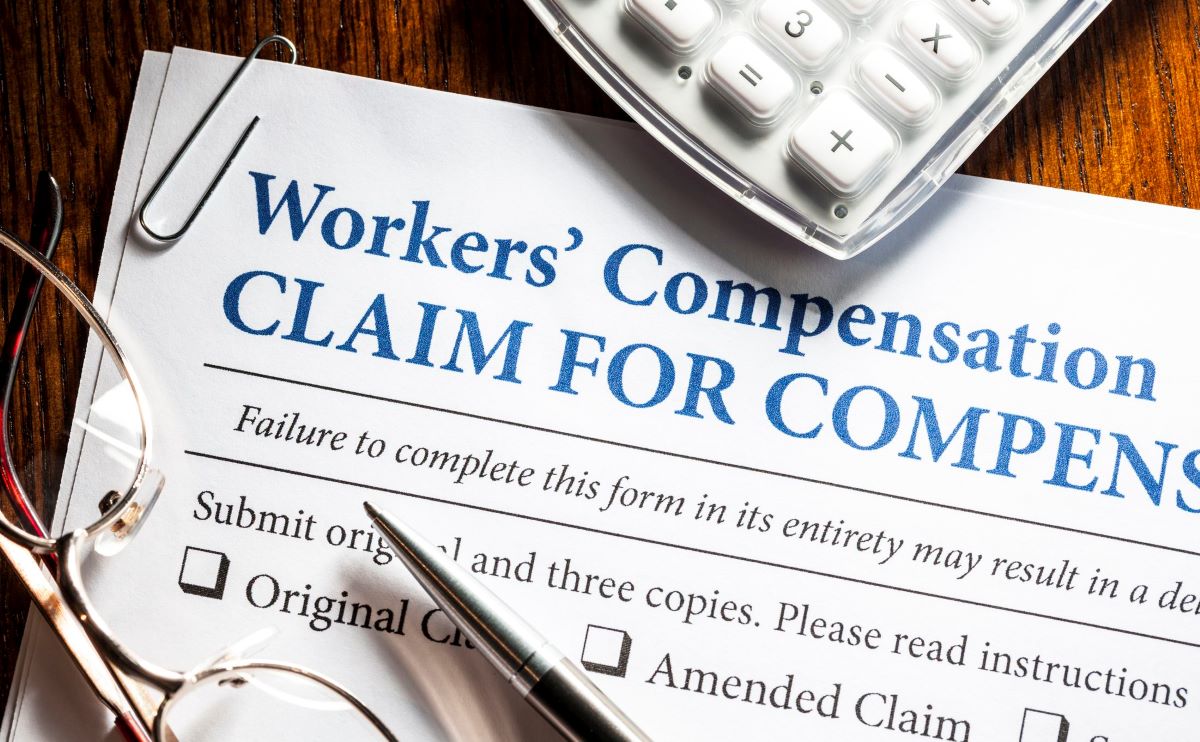Home>Finance>Who Pays Health Insurance Premiums While On FMLA?


Finance
Who Pays Health Insurance Premiums While On FMLA?
Modified: December 30, 2023
Discover who is responsible for paying health insurance premiums while on FMLA leave and get a clear understanding of the financial implications. Find answers now.
(Many of the links in this article redirect to a specific reviewed product. Your purchase of these products through affiliate links helps to generate commission for LiveWell, at no extra cost. Learn more)
Table of Contents
- Introduction
- Overview of FMLA
- Eligibility for FMLA
- Health Insurance Coverage under FMLA
- Employee’s Responsibility for Health Insurance Premiums
- Employer’s Responsibility for Health Insurance Premiums
- Duration of Health Insurance Coverage under FMLA
- Return to Work after FMLA Leave
- Exceptions to Health Insurance Coverage during FMLA
- Importance of Understanding Health Insurance Coverage during FMLA
- Conclusion
Introduction
When employees need to take time off from work due to serious health conditions or family-related reasons, one important aspect they consider is their health insurance coverage. The Family and Medical Leave Act (FMLA) is a federal law that provides eligible employees with up to 12 weeks of unpaid, job-protected leave per year. However, a common question arises among employees: who is responsible for paying health insurance premiums during FMLA leave?
In this article, we will explore the intricacies of health insurance coverage while on FMLA leave. We will discuss the eligibility requirements for FMLA, the responsibilities of both employees and employers regarding health insurance premiums, the duration of health insurance coverage during FMLA, and the exceptions to coverage. Understanding these aspects is crucial for both employees and employers to ensure a smooth transition during FMLA leave.
Let’s delve into the details of health insurance coverage while on FMLA and shed light on who bears the responsibility for health insurance premiums during this time.
Overview of FMLA
The Family and Medical Leave Act (FMLA) is a federal labor law enacted in 1993 that provides eligible employees with protected leave for specific family and medical reasons. Under FMLA, eligible employees are entitled to up to 12 weeks of unpaid leave in a 12-month period to attend to qualifying events without the fear of job loss.
FMLA is designed to support employees in balancing their work and family responsibilities during critical times. It covers various situations, including the birth or adoption of a child, caring for a seriously ill family member, or attending to one’s own serious health condition. Additionally, FMLA also allows eligible employees to take leave to address certain qualifying exigencies due to a family member’s military service.
To be eligible for FMLA, employees must meet certain criteria. First, they must work for a covered employer, which includes private sector employers with 50 or more employees and public agencies, including federal, state, and local governments. Second, employees need to have worked for their employer for at least 12 months, although these months do not have to be consecutive. Lastly, employees must have worked at least 1,250 hours during the 12-month period preceding the start of FMLA leave.
It is important for both employees and employers to understand the basic framework of FMLA in order to navigate the complexities of health insurance coverage during leave. With this foundation, we can now delve into the specifics of health insurance coverage under FMLA and answer the pivotal question of who pays health insurance premiums during this period.
Eligibility for FMLA
To be eligible for FMLA, employees must meet certain criteria as outlined by the United States Department of Labor. These criteria ensure that the granted leave is utilized for valid reasons and protects employees and employers alike.
The first criterion relates to the nature of the employer. Only certain employers are required to provide FMLA leave. Private sector employers who employ 50 or more employees for at least 20 workweeks in the current or preceding calendar year are covered under FMLA. This includes joint employers and successors of covered employers.
The second criterion involves the length of employment. To be eligible for FMLA leave, employees must have worked for their employer for at least 12 months. However, these months need not be consecutive. This means that employees who have had multiple periods of employment with the same employer within a 7-year period may count the total months worked towards FMLA eligibility.
The third criterion is related to the hours worked. In the 12 months preceding the start of FMLA leave, employees must have worked at least 1,250 hours. This equates to an average of about 24 hours per week. The hours include both paid and unpaid time, such as overtime, vacation time, and sick leave.
In addition to these three basic eligibility requirements, there are specific provisions for certain categories of employees. For example, employees who work for covered public agencies, including federal, state, and local governments, are eligible for FMLA leave regardless of the number of employees employed.
It is important for employees to evaluate their eligibility for FMLA leave before making any decisions regarding their health insurance coverage. Additionally, employers should familiarize themselves with these eligibility requirements to ensure compliance with the law when administering FMLA leave and addressing health insurance premium payments during the leave period.
Health Insurance Coverage under FMLA
One crucial concern for employees taking FMLA leave is the maintenance of their health insurance coverage. Fortunately, the FMLA includes provisions that protect employees’ access to health insurance during their leave period.
Under FMLA, employees who take leave have the right to continue their health insurance coverage on the same terms as if they had not taken leave. This means that employees cannot be denied their health insurance benefits while on FMLA leave. They are entitled to the same coverage, deductibles, co-payments, and other terms as if they were actively working.
This provision ensures that employees who are dealing with serious health conditions or family-related matters are not left without essential health insurance coverage. It helps alleviate the stress of potential medical expenses during the leave period and allows employees to focus on their well-being or the well-being of their family members.
It’s important to note that the continuation of health insurance coverage under FMLA is not limited to medical coverage alone. It also extends to other benefits offered by the employer, such as dental, vision, and life insurance.
Employees should review the specifics of their health insurance policy to understand the extent of coverage during FMLA leave. Understanding the benefits, limitations, and any necessary steps to maintain coverage will help employees make informed decisions regarding their health and well-being during their leave period.
Next, we will explore the responsibility of both employees and employers when it comes to health insurance premium payments during FMLA leave, as this is a critical aspect of maintaining coverage.
Employee’s Responsibility for Health Insurance Premiums
Although employees have the right to continue their health insurance coverage during FMLA leave, they may still be responsible for paying their share of the health insurance premiums. The responsibility for health insurance premium payments during FMLA leave varies depending on the employer’s policies and the terms of the health insurance plan.
In many cases, employees are required to continue paying their portion of the health insurance premiums while on FMLA leave. This means that they must still contribute the same amount they would typically pay if they were actively working. The employer’s contribution to the premium, on the other hand, remains the same.
Employees should review their health insurance plan documents and speak with their employers or the benefits coordinator to understand the specifics of their premium payments during FMLA leave. It is crucial to be clear on how much needs to be paid and the method of payment during the leave period.
In some instances, employers may allow employees to make alternative arrangements for premium payments during FMLA leave. For example, employees may be given the option to prepay their premiums or make arrangements for catch-up payments upon their return from leave. These alternatives can help alleviate the financial burden for employees who may be facing reduced income during the leave period.
If employees are unable to meet their premium payment obligations during FMLA leave, they may risk losing their health insurance coverage. It is essential for employees to communicate with their employers or benefits providers to explore available options and seek clarification on any concerns or challenges they may face.
Understanding and fulfilling the responsibility for health insurance premium payments is vital for employees to ensure uninterrupted coverage during FMLA leave. However, it is equally important to consider the employer’s role and responsibility in maintaining health insurance coverage during this period, which we will discuss in the next section.
Employer’s Responsibility for Health Insurance Premiums
While employees may be responsible for continuing their share of health insurance premium payments during FMLA leave, employers also have obligations when it comes to health insurance coverage.
Under FMLA, employers are required to maintain the employee’s health insurance coverage on the same terms as if the employee were actively working. This means that the employer must continue to contribute their portion of the health insurance premiums during the employee’s FMLA leave. The employer’s contributions should remain unchanged, ensuring that the employee’s coverage is not affected during their absence.
It is important for employers to clearly communicate their policies regarding health insurance premium payments during FMLA leave to their employees. They should provide employees with necessary information, such as the amount of the employer’s contribution and the method of payment, to ensure transparency and avoid any confusion or misunderstandings.
Employers should also be proactive in informing employees about any changes to the premium payment process or deadlines, especially if there are alternative arrangements available to accommodate employees’ financial situations during FMLA leave. This can include options to prepay premiums or defer payments until the employee’s return from leave.
To ensure compliance with the law and maintain a positive working relationship, employers should consistently follow their established policies and procedures when it comes to health insurance coverage and premium payments during FMLA leave. By fulfilling their responsibilities, employers can support their employees’ well-being and help reduce any financial strain that may arise during the leave period.
However, it is important to note that the employer’s responsibility for health insurance premium payments is limited to the duration of the FMLA leave. If the employee’s leave extends beyond the allowed 12 weeks, the employer may have the right to terminate the health insurance coverage. Therefore, both employees and employers should closely monitor the length of the FMLA leave and make any necessary arrangements for extended absences.
With a clear understanding of the employee’s and employer’s responsibilities for health insurance premiums during FMLA leave, it is essential to consider the duration of health insurance coverage under FMLA, which we will explore in the next section.
Duration of Health Insurance Coverage under FMLA
The duration of health insurance coverage under FMLA depends on the specific terms and conditions of the employer’s health insurance plan. While the FMLA guarantees that employees can maintain their health insurance coverage during their leave, it does not extend that coverage indefinitely.
Typically, the health insurance coverage under FMLA lasts for the duration of the approved 12-week leave period. This means that employees will continue to have access to their health insurance benefits and coverage as if they were actively working for those 12 weeks. The employer’s contributions to the health insurance premiums should also continue during this period.
However, it is important to note that if an employee’s FMLA leave extends beyond the approved 12 weeks, the employer may have the right to terminate the health insurance coverage. In such cases, employers may offer employees the option to continue their health insurance coverage through COBRA (Consolidated Omnibus Budget Reconciliation Act), which allows individuals to continue their health insurance coverage for a specified period after experiencing a qualifying event such as a job loss or reduction in work hours.
COBRA coverage provides a temporary continuation of health insurance benefits, but it often comes at a higher cost to the employee, as they will be responsible for paying the full premium amount. Employees should carefully consider their options and evaluate the cost and benefits of COBRA coverage if their FMLA leave extends beyond the approved period.
It is crucial for employees to stay informed about the duration of their FMLA leave and make the necessary arrangements for health insurance coverage beyond the approved time frame. Communication with the employer and understanding the employer’s policies regarding extended leave and health insurance coverage can help employees mitigate any gaps in coverage.
Returning to work after FMLA leave also has implications for health insurance coverage, which we will explore in the next section.
Return to Work after FMLA Leave
Returning to work after FMLA leave raises important considerations for employees in terms of their health insurance coverage. The process of returning to work and resuming health insurance benefits should be handled smoothly to ensure a seamless transition.
After the completion of their FMLA leave, employees have the right to be reinstated to the same or an equivalent position with the same pay, benefits, and other terms and conditions of employment. This includes the continuation of health insurance coverage at the same level as before their leave.
Typically, employers will reinstate the employee’s health insurance coverage upon their return to work without any interruption. Employees should verify the details of their coverage and ensure that it is reinstated on the agreed-upon date.
During the FMLA leave period, employees may have continued to contribute their portion of the health insurance premiums to maintain coverage. Upon returning to work, employees may need to provide any outstanding premium payments, especially if alternative arrangements were made during their leave period.
Employees should review their health insurance premiums, confirm any outstanding payments, and coordinate with their employer’s benefits coordinator or human resources department to ensure a smooth reinstatement of their health insurance coverage.
If there were any changes to the health insurance plan or premiums during the employee’s FMLA leave, employers must provide employees with a notice of any significant changes before their return to work. This gives employees an opportunity to review and understand any modifications to their health insurance coverage.
It is crucial for employees to familiarize themselves with the details of their health insurance coverage and fully comprehend any changes or updates during their absence. Communication and coordination between employees and employers are key to ensuring a successful transition back to work and the full reinstatement of health insurance benefits.
Understanding the return-to-work process and knowing the employer’s policies will help employees seamlessly integrate back into their roles without any disruptions to their health insurance coverage, providing them with the necessary peace of mind as they resume their responsibilities.
Exceptions to Health Insurance Coverage during FMLA
While the FMLA provides important protections for employees to maintain their health insurance coverage during leave, there are certain exceptions that may impact the continuation of coverage. It is essential for employees to be aware of these exceptions to avoid any surprises or gaps in their health insurance benefits.
One exception to health insurance coverage during FMLA relates to employees who choose not to return to work after their leave period. If an employee decides not to return to work, they may be responsible for reimbursing the employer for the health insurance premiums that were paid by the employer during their FMLA leave. This reimbursement typically applies if the employee does not return to work for reasons other than their own serious health condition or a family member’s serious health condition.
In some cases, employers may offer employees the option to maintain their health insurance coverage but require the employee to cover the full cost of the premiums during FMLA leave. This option is often referred to as “self-pay.” Employees should inquire about this option with their employer to understand if it is available and the associated costs.
Furthermore, if an employee’s health insurance plan ends for reasons unrelated to FMLA, such as the employer discontinuing the plan, all employees, including those on FMLA leave, will be affected. In such cases, employees may be offered the opportunity to enroll in a new health insurance plan, such as through COBRA or another group plan offered by the employer.
It is crucial for employees to stay informed about any exceptions to health insurance coverage during FMLA and to maintain open lines of communication with their employer or benefits coordinator to understand the options available to them. Being proactive and seeking clarification on coverage exceptions will help employees plan accordingly and make informed decisions regarding their health insurance benefits during and after FMLA leave.
Understanding these exceptions and taking the necessary steps to address them will help employees navigate the complexities of health insurance coverage under FMLA and ensure they are prepared for any potential changes or challenges that may arise.
Importance of Understanding Health Insurance Coverage during FMLA
Understanding health insurance coverage during FMLA leave is essential for both employees and employers. It ensures a smooth transition for employees who need to take time off for their own serious health condition or family-related reasons, while also protecting their access to vital healthcare benefits. Here are some key reasons why understanding health insurance coverage during FMLA is crucial:
1. Financial Stability: FMLA leave can sometimes lead to reduced income or financial strain for employees. By understanding the details of health insurance coverage, employees can plan and budget for any premium payments they may be responsible for during their leave. This helps maintain financial stability and ensures that necessary healthcare expenses are covered.
2. Continuity of Care: Continuity of healthcare is crucial, especially for individuals dealing with serious health conditions. Understanding health insurance coverage ensures that employees can continue receiving necessary medical care and treatment without interruptions during their leave. It reduces the risk of disruption in ongoing treatments or medication access.
3. Knowledge of Available Options: Understanding health insurance coverage during FMLA allows employees to explore available options, such as alternative premium payment arrangements or enrollment in COBRA, if necessary. Being aware of these options empowers employees to make informed decisions that best suit their needs and financial situations.
4. Compliance with Legal Requirements: Employers have an obligation to comply with FMLA regulations concerning health insurance coverage during leave. By understanding the requirements, employees can hold employers accountable for providing the correct coverage and ensuring that their rights are protected under the law.
5. Peace of Mind: Having a clear understanding of health insurance coverage during FMLA provides peace of mind to employees. They can focus on their health or the well-being of their family members without worrying about potential gaps in coverage or the financial implications of healthcare expenses during their leave.
6. Smooth Transition: Understanding health insurance coverage and associated requirements helps facilitate a smooth transition back to work after FMLA leave. Employees who are knowledgeable about their coverage can coordinate with their employer and promptly reinstate their health insurance benefits upon their return, ensuring that they can quickly resume accessing healthcare services.
Overall, understanding health insurance coverage during FMLA is crucial for both employees and employers. It ensures financial stability, continuity of care, compliance with legal requirements, and provides peace of mind during a challenging time. By communicating and clarifying any uncertainties, employees can navigate their leave period confidently, knowing that their health insurance needs are being met.
Conclusion
Health insurance coverage during FMLA leave is a critical consideration for employees and employers alike. Understanding the intricacies of health insurance coverage ensures that employees can maintain access to essential healthcare benefits while taking time off for their own serious health condition or family-related matters.
Employees should familiarize themselves with the eligibility requirements for FMLA and the responsibilities they have regarding health insurance premium payments during their leave. By proactively communicating with their employers and understanding the policies and options available to them, employees can navigate the leave period with confidence.
Employers, on the other hand, have a responsibility to provide and maintain health insurance coverage for their employees during FMLA leave. By adhering to FMLA regulations and effectively communicating with employees about premium payments, changes to coverage, and the reinstatement process upon their return, employers can ensure a seamless transition for their employees.
It is crucial for both employees and employers to be aware of any exceptions to health insurance coverage under FMLA. Understanding these exceptions, such as the requirement for employees to reimburse premiums if they choose not to return to work, helps avoid any surprises or gaps in coverage.
Ultimately, understanding health insurance coverage during FMLA leave promotes financial stability, continuity of care, compliance with legal requirements, and peace of mind for employees. By proactively seeking clarification, exploring available options, and maintaining open lines of communication, employees can confidently navigate their leave period and seamlessly transition back to work.
It is vital for employees and employers to work together to ensure a smooth and successful experience during FMLA leave. By understanding the importance of health insurance coverage, both parties can prioritize the well-being of employees and create an environment that values and supports their health and personal needs.














